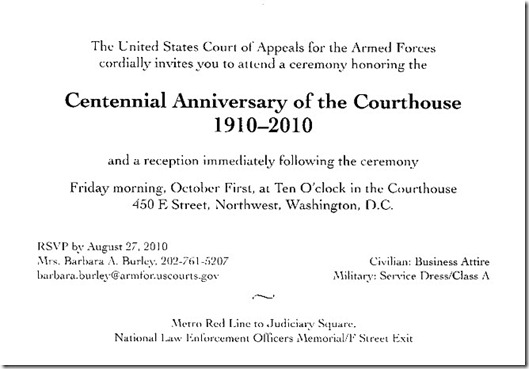On 28 July 2010, ACCA issued a memorandum opinion and decision for the government appeal in United States v. Kirk, ARMY MISC 20100443 (A. Ct. Crim. App. 28 July 2010).
At trial the accused blew providency on an AWOL plea. The prosecution decided they wanted to go forward on the desertion. As part of the case the prosecution wanted to use unwarned statements made to the First Sergeant. The military judge said the statements were coerced, etc., and excluded them. The prosecution appealed. Of course the ACCA ruled in favor of the government that being dragged to the First Sergeant’s office, locked up, and asked a bunch of questions, was not an interrogation and any statements were voluntary. Cases cited are United States v. Duga, 10 M.J. 206 (C.M.A. 1981); United States v. Loukas, 29 M.J. 385 (C.M.A. 1990). Basically it is in the mind of the questioner, not the person being questioned.
Here is the noteworthy piece.
 Court-Martial Trial Practice Blog
Court-Martial Trial Practice Blog











